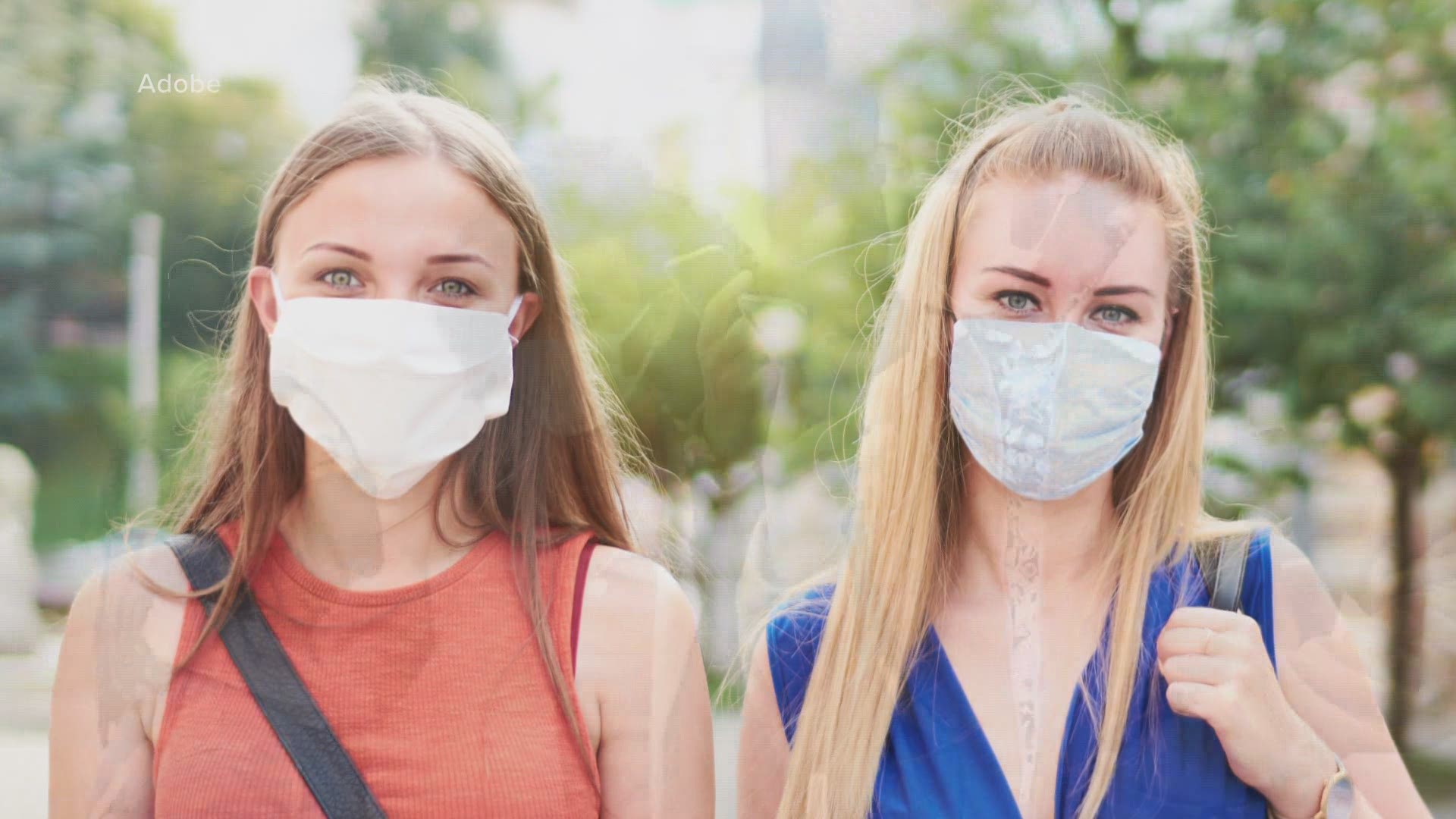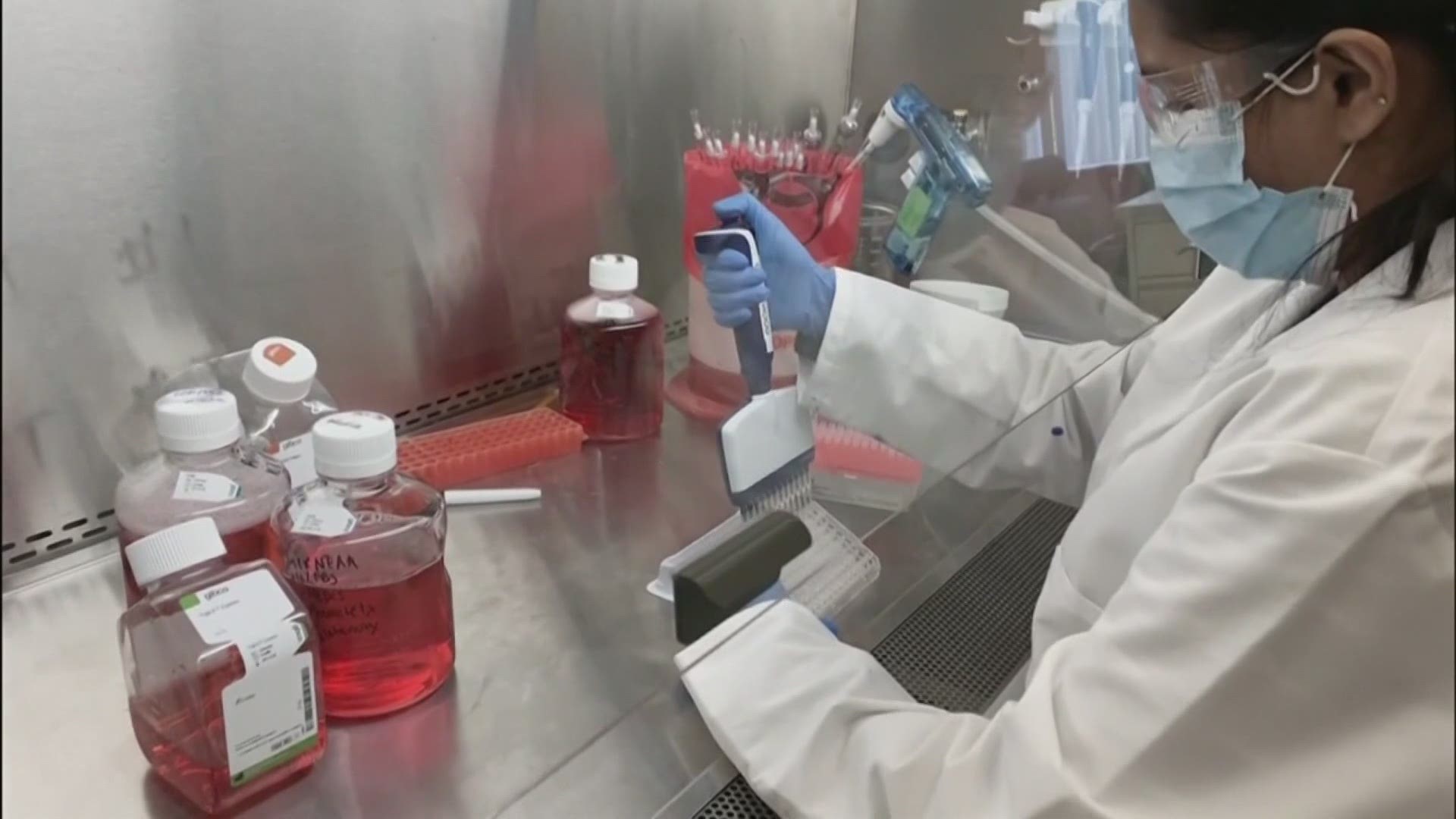GRAND RAPIDS, Mich. — The State of Michigan continues to deal with a disturbing surge of COVID-19 cases. The number of new cases has been among the highest in the nation, for weeks now.
Just over 6,300 new cases were reported Wednesday, alone. Hospitalizations are up 25 percent since last week and deaths increased by nearly 40 percent. Although the positivity rate declined this week, it is still higher than it was last November.
Gov. Gretchen Whitmer is resisting a Centers for Disease Control and Prevention recommendation to shut the state down again, explaining on ABC News Live, that she is pushing for more vaccinations instead of restrictions.
“I don't have the same set of powers that I had a year ago. It’s very different on the ground here in Michigan than it is in Washington D.C.,” Whitmer said. “What I will say, though, is we know what it takes to stay safe and it is incumbent on every single one of us to take this virus seriously and to do our part.”
The nation’s leading experts continue to say between 70 to 80 percent of the U.S. population must be vaccinated to achieve herd immunity. However, several recent studies show many young people are reluctant to take the vaccine.
“This is extremely timely and relevant, because we think if we're going to beat this thing we've got to get the resistant populations to step over the line and get vaccinated, because otherwise it will linger; it will mutate and will re-infect the population at large,” says David Huehnergarth, chief strategy officer at LevLane Inc.
LevLane Inc. and MarketVision Research, Inc. conducted a study “to gain insight into which groups are most resistant to the vaccine, why they are wary, and what can be done to overcome their worries.”
Members of Generation Z were born in 1996 or 1997, depending on the source, and after. It is estimated there are about 72 million in the United States.
Several recent studies, including LevLane Inc.’s show, roughly 25 percent of them, are experiencing vaccine hesitancy. A number that is significantly higher than it was just a few months ago.
“We've been digging into the data to try and have it talk to us, and to tell us a little bit of a story. So, the findings from our study are consistent with what we're seeing in other data that surveys Gen Z; and, that they are more hesitant to be vaccinated,” says Kendall Gay, a vice president, of the Healthcare Insights Team at MarketVision Research.
“The indication is Gen Z is confused. They seem to be telling us that the information is out there is not clear, it's not consistent, and they're confused. They want to know more about side effects. They want to know more about immunogenicity. They want to know if it's going to cost them; and, do they have to pay for it.”
Kendall says poor messaging and lack of information is partly to blame.
“What is confusing them? They want consistent and clear direction from federal state and local governments. They want consistent clear direction from medical leaders, Dr. Anthony Fauci. And, they want clear, consistent information from our nation's scientists. To them, the overall message is muddled and it's inconsistent. It's creating confusion on top of the noise of all the conspiracy theories going on,” Kendall said.
Huehnergarth says another consideration is, despite what is happening around the nation, Gen Z's still don't recognize, or feel, the full impact of this pandemic.
“It is not something that they're seeing happening to people they know," Huehnergarth said. "And automatically that sets up a question of, is it worth it? Do I need to get it? And, if I don't really need to get, it am I going to get side effects, which one's better? A whole host of things come up."
Market Research Assistant, Rachael Pappalardo, agrees. The world has been on lockdown for over a year now and Pappalardo says at this point in time, the Gen Z community don't care anymore.
“I know a lot of people in my life that don't see their parents or their grandparents and they live by themselves. So, to Gen Z, they really don't feel that they are at risk, in the sense that they can't infect anybody else,” Pappalardo said. “Also, anecdotally speaking, I actually had COVID in October, and up until that point, I probably would have had that same mindset. But for me, the driving force to getting the vaccine was actually experiencing it myself.”
Huehnergarth concluded that Gen Z needs specific outreach using people that they respect and would believe. He continues on to say that it has to be separate communication avenues, primarily through smartphones and even certain peers or celebrities discuss the pandemic and vaccinations.
“Vaccinations are out there, and they're just not taking them because they don't really feel that they have to, or it's important enough to we have to show them why it's important for them to do it," said Huehnergarth. "And we have to get them to, and they do it better than any other generation, influence their peers to go with them and do it.”
The findings from the study can be found here.
RELATED VIDEO:
►Make it easy to keep up to date with more stories like this. Download the 13 ON YOUR SIDE app now.
Have a news tip? Email news@13onyourside.com, visit our Facebook page or Twitter. Subscribe to our YouTube channel.



